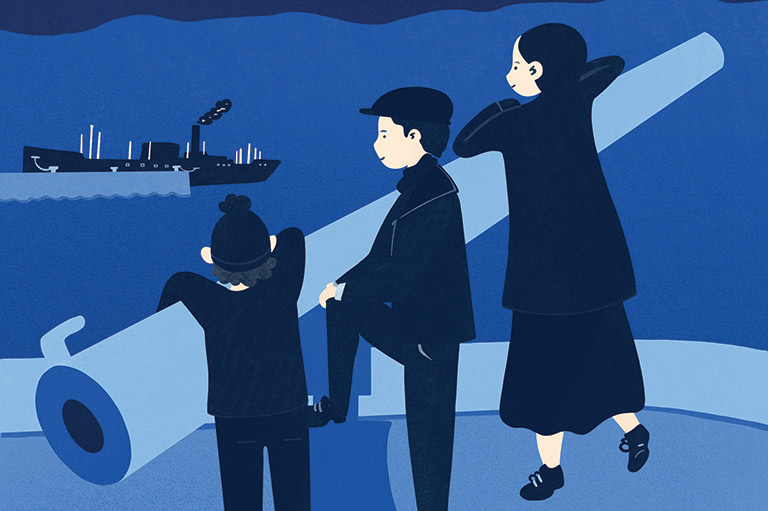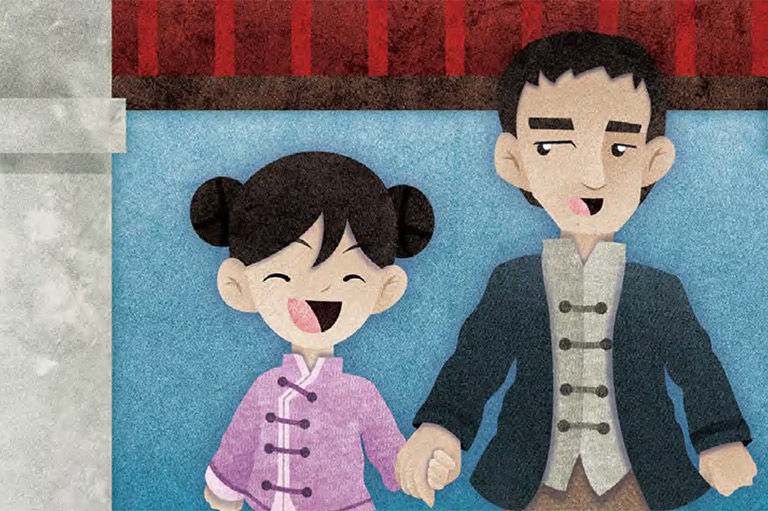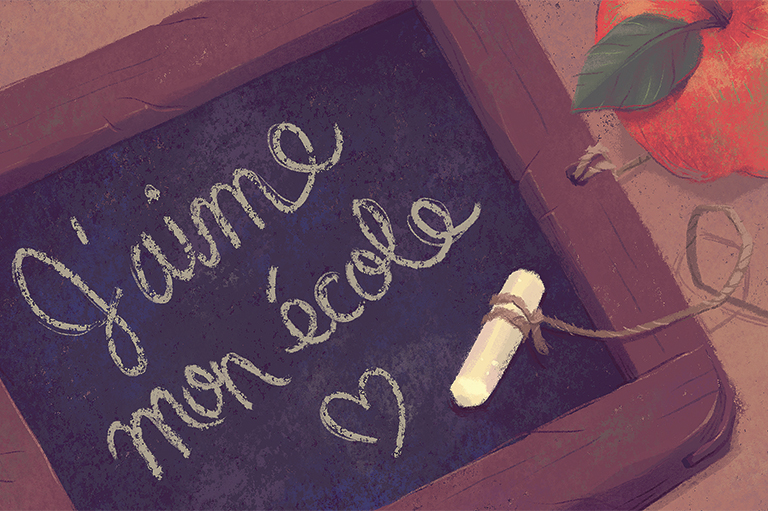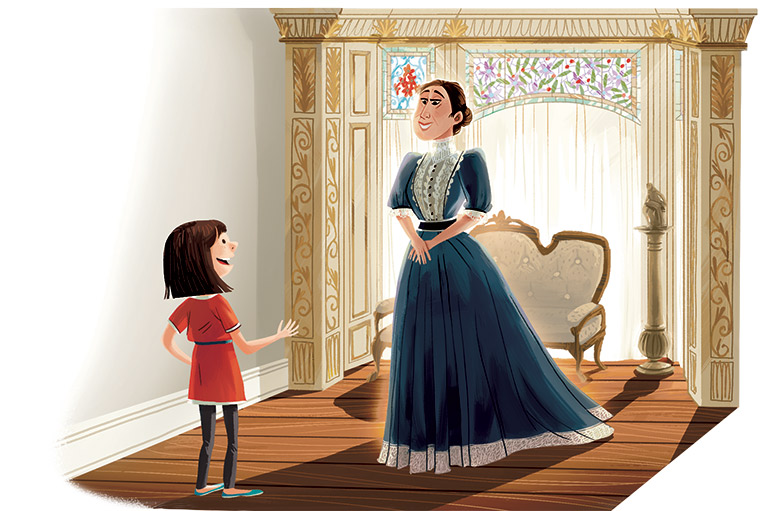Care For All
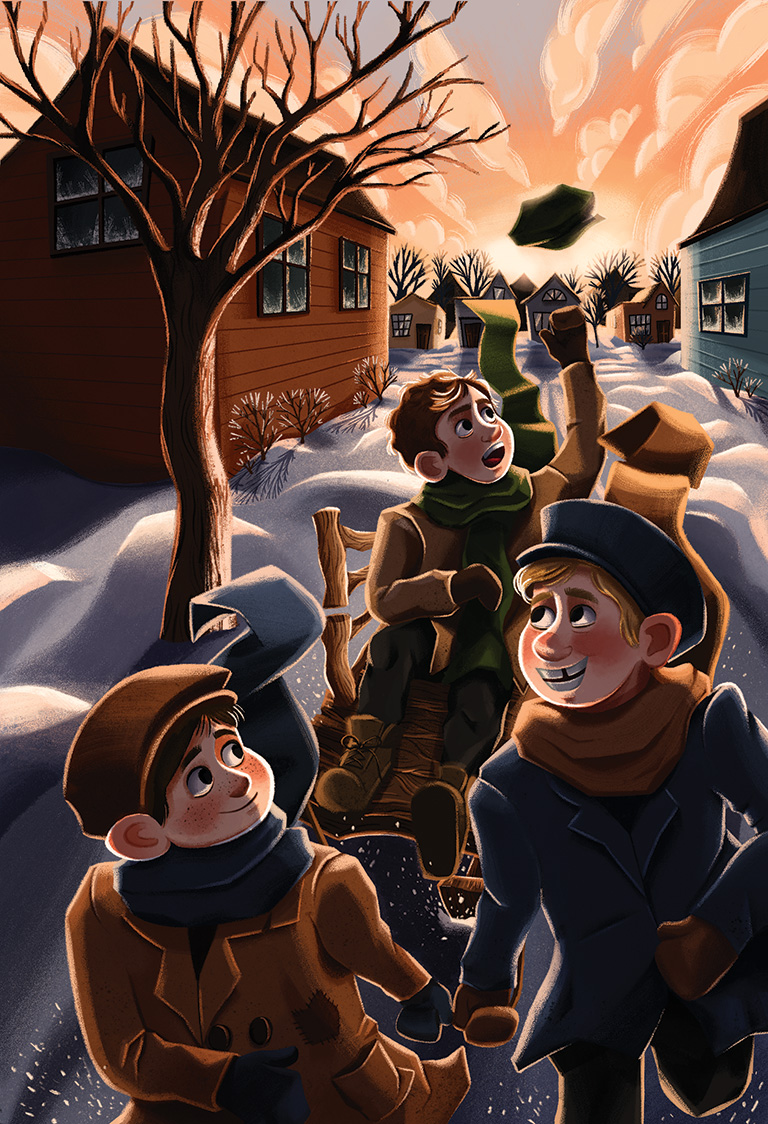
Winnipeg, February 1914
“Wait! Stop!” Tommy yelled as his hat flew off. The two boys pulling the sled stopped suddenly, sending Tommy and his crutches tumbling into a snowbank. He winced as he stood up and limped back to get his hat.
“We said we’d get you to school on time,” Jerzy yelled with a grin, “but only if you hang on.”
Tommy couldn’t stay mad. After all, he’d expected to be stuck at home on crutches for months. So when his neighbourhood pals had shown up with the sleigh that morning, he’d been speechless at their kindness. And Tommy Douglas wasn’t often speechless.
Pretending to be irritated, Anton carefully tucked Tommy’s crutches in beside him. “When will your leg be better, anyway?” he asked.
Tommy sighed. “I don’t know. They’ve operated on it so many times but it never really heals. I hope this time is different.”
His friends nodded. Their families were poor immigrants, too. Tommy came from Scotland, but thankfully didn’t look down on them just because they were from Poland and Ukraine. They knew what it was like not to be able to afford to go to the doctor.
“The bell’s ringing!” Tommy yelped. “Can you pull faster?”
“Better hold on to your hat!” Anton cried, lowering his head into the wind and barrelling toward the school.
****
Tommy pulled the thin hospital blanket up to his chin. Even though everyone at the hospital was nice, he wished he were anywhere else. And he wished his leg would stop hurting all the time.
His parents were talking in quiet, worried voices outside his room but he only caught a word or two at a time: words like “too expensive” and “no other choice.”
His mother let out a small sob as they came back in and stood by Tommy’s bed. His father’s face showed pain of another kind. “The doctor says the infection is in your bone now, Tom. The only thing left is to cut off the leg.”
Tommy couldn’t believe what he was hearing. “There’s a more complicated operation but it would cost a small fortune … ” his mother’s voice trailed off. “You’re getting around well on crutches, and you’ll have lots of help.”
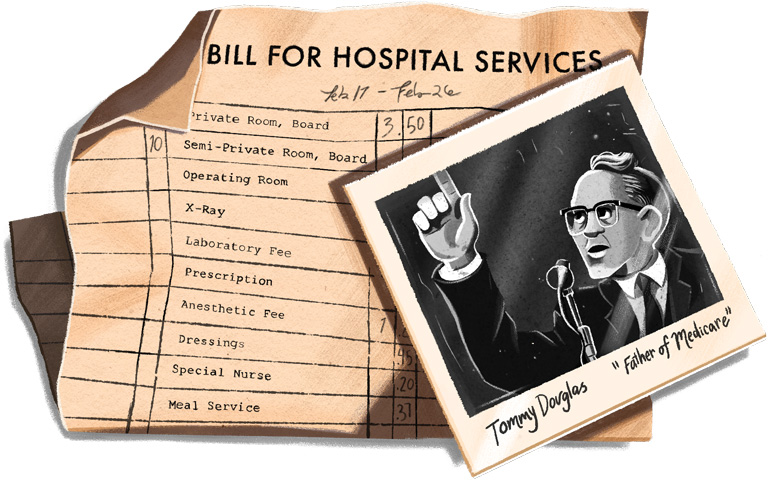
He wanted to throw up but he knew they were right. It was hopeless. He’d never run or jump again. He wanted to scream but he just clenched his jaw and held it in. The doctor bustling into the room must have felt their misery, but he didn’t show it.
“Are you the Douglases? I’m Dr. Smith. I hear Tommy needs a special operation,” he said.
“He does, but we can’t possibly afford it,” Tommy’s father answered.
“Don’t worry about that,” Dr. Smith said. He turned to Tommy with a kind smile. “If you don’t mind a bunch of my medical students watching the operation, I’d be happy to do it for free.”
In an instant, the gloom lifted and the Douglases nearly wept with joy.
“Oh, Dr. Smith! We can’t thank you enough!” Mrs. Douglas said.
“D’ye hear that, boy?” Mr. Douglas said. “You’ll be good as new!”
Relief flooded Tommy’s whole body, but after the others had left him for the night, a little question sat uneasily at the back of his mind.
****
Dr. Smith and his medical students gathered around Tommy’s bed. “You’ll remember this lad I operated on,” the doctor was saying. “They thought he might have to have the whole leg taken off, but I’d say the patient is recovering well.” He winked. “I hope you agree, Tommy.”
He turned to face the students. “The procedure went smoothly, and I expect he’ll be able to enjoy a normal life. Of course, it’s too bad he cannot bend his knee.”
Tommy nearly laughed out loud. “But doctor, I can bend it!” To prove his point, he flexed his leg back and kicked it up off the bed, nearly knocking one of the medical students’ glasses right off. Now everyone was laughing at the unexpected good news.
After Dr. Smith and his students left, it was just Tommy and his parents in the room. “I can’t believe how lucky you were,” Mrs. Douglas said for about the one hundredth time.
“He’s a good man, Dr. Smith,” said Mr. Douglas for about the two hundredth time.
The question in Tommy’s mind had bothered him even more often. “I am lucky,” he said, “and Dr. Smith is a good man. But what about all the other children who didn’t have someone like him? Who didn’t get lucky?”
His father sighed. “You can’t worry, Tom. Your job is to get better.”
“But it’s not fair,” Tommy said firmly. “It’s just not fair.”
His mother kissed his forehead. “You’re right. It isn’t. But it’s the way things are.”
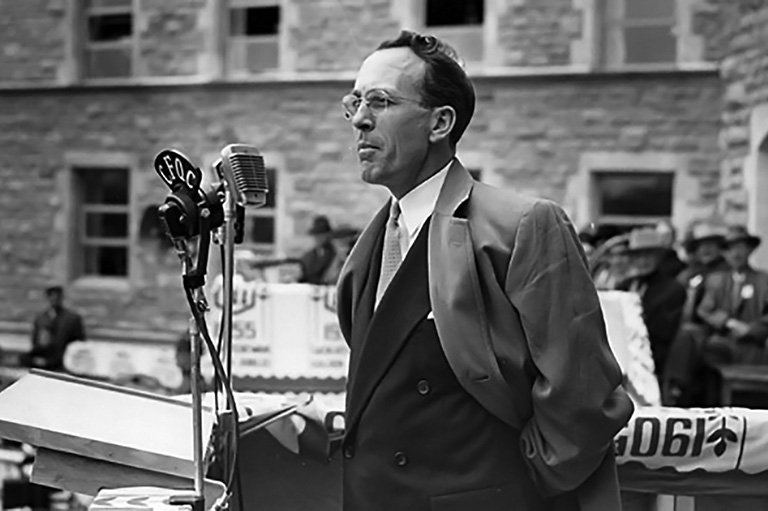
When Tommy Douglas was a little boy living in Scotland, he fell on a rock and cut his knee. The injury got worse and before his family moved to Canada, he had operations to try to fix it. It never healed properly, and his family couldn’t afford to pay for the operation that would make it better. Back then, you had to pay for every trip to the doctor or the hospital.
Although we imagined what the people said, the main events in the story are true. Douglas never forgot the kindness of the immigrant boys who befriended him (and, yes, who dragged him to school on a sleigh!), or how lucky he was that Dr. R. H. Smith operated on him for free.
Later in life he said, “Through the years I came to believe that health services ought not to have a price tag on them.”
Douglas became premier of Saskatchewan in 1944. His government brought in Canada’s first health insurance plan, which made medical care free for everyone. Eventually the same ideas were put into place across the country, which is why you can now visit the doctor or go to an emergency room and the adults in your life don’t have to worry about how much it will cost.
Themes associated with this article
More fiction features
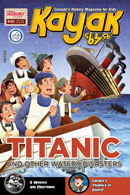
Canada’s History Archive features both English and French versions of Kayak: Canada’s History Magazine for Kids.
Kayak: Canada’s History Magazine for Kids — 3 digital issues per year for as low as $13.99. Tariff-exempt!

